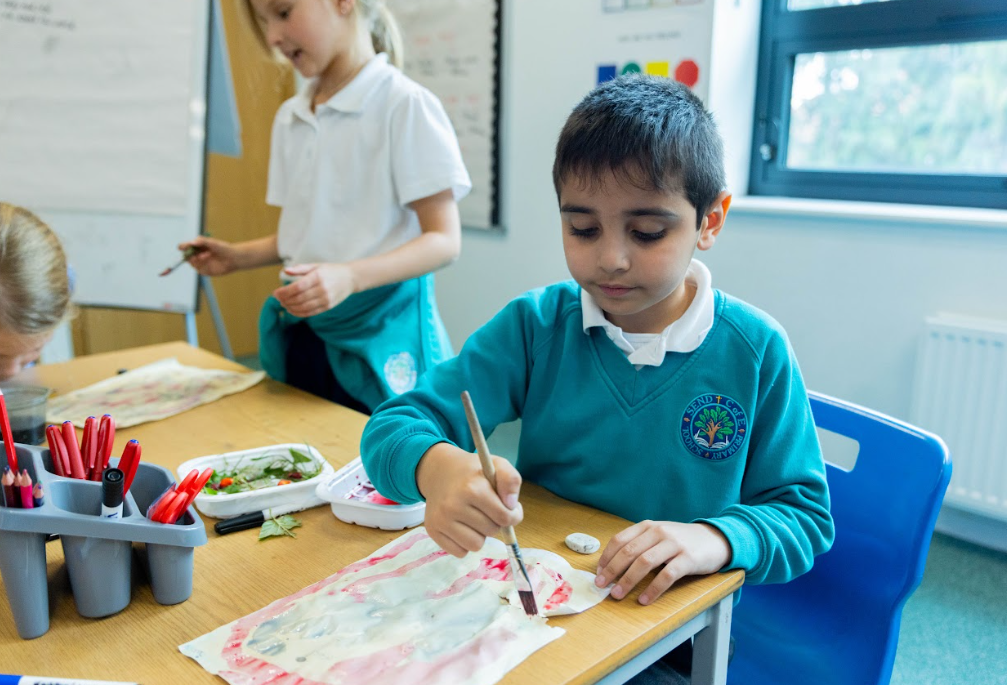Art & Design
Why do we teach Art & Design?
We want our children to develop as critical and creative thinkers and through our Art & Design Curriculum, we develop creativity, set challenges, engage and inspire children.
Art enriches our curriculum; it allows children to explore their imagination, generate ideas, acquire skills, apply judgements and rejoice in their learning. It offers opportunities to recognise and be inspired by the awe and wonder of God’s creation through studying the work of different artists. Art enables children to become more globally and culturally aware by being exposed to a range of craft, art and design from the UK and the world beyond.
What do we teach in Art & Design?
Children learn the skills of drawing, painting, printing, collage, textiles, 3D work and digital art and are given the opportunity to explore and evaluate different creative ideas.
We follow the National Curriculum for Art & Design which can be found here. We use the Learning Challenge Curriculum to deliver the national curriculum objectives and the units for each year group are:
Key Stage 1 Units:
| Drawing | Painting | Sculpture | |
| Year 1 | Observation | Colour Mixing | Clay |
| Year 2 | Self Portraits | Pointillism | Junk Modelling |
Key Stage 2 Units:
| Drawing | Painting | Sculpture | |
| Year 3 | Charcoal | Landscapes | Clay |
| Year 4 | Pastels | Watercolours |
Environment |
| Year 5 | Pencils | Oil/ Acrylic | Clay |
| Year 6 | Perspective | Surrealism | Wire |
You can download the progression guide, which shows how the units build year on year at the bottom of the page.
How do we teach Art & Design?
Art & Design is taught as a discrete subject although links to other themes and subjects are included wherever possible. The children are taught the knowledge, skills and techniques that enable them to experiment, invent and create their own works of art, craft and design. Links are made to art in industry and in real life settings and children gain a sense of what is possible for their future lives.

